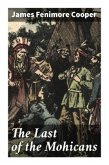In "The Romany Rye," George Borrow crafts a captivating narrative that intertwines personal reflection with a vivid portrayal of Romani culture in 19th-century England. Written in Borrow's signature style, the novel combines rich descriptions with an evocative, lyrical prose that immerses the reader in a world of wandering travelers, rich folklore, and social commentary. Through the eyes of the protagonist, the book explores themes of identity, freedom, and the societal challenges faced by the Romani community, creating an intricate tapestry that reflects both the author's experiences and the broader socio-political landscape of his time. George Borrow, a missionary, linguist, and ardent advocate for Romani rights, drew from his own encounters with the Romani people to inform this work. His lifelong fascination with their language and traditions, sparked during his travels in Eastern Europe, greatly influenced his writing style and thematic focus. This intimate knowledge of Romani life provides an authentic voice to the characters and narratives in "The Romany Rye," making it not only a work of fiction but also a vital ethnographic document of its era. Readers seeking a profound understanding of 19th-century English society and an insightful portrayal of Romani culture will find "The Romany Rye" to be an enlightening and enriching read. Borrow's ability to intertwine personal journey with cultural exploration invites readers to ponder their own perceptions of belonging and identity within society.
Bitte wählen Sie Ihr Anliegen aus.
Rechnungen
Retourenschein anfordern
Bestellstatus
Storno








